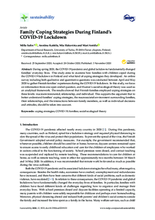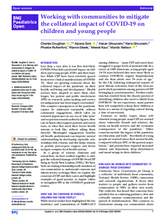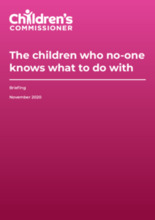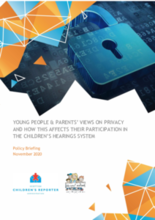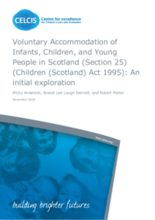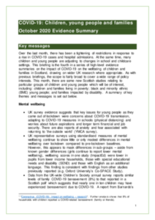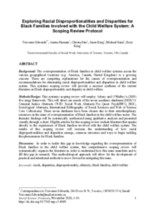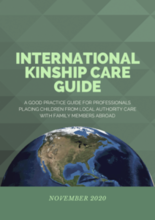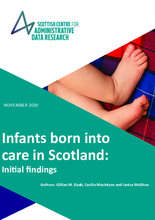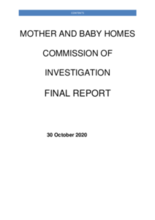

Displaying 401 - 410 of 1653
This study aims to examine how families with children coped during the COVID-19 lockdown in Finland and what kind of coping strategies they developed.
In this paper, the authors explore the concerns of children and young people (CYP) living in North West London (NWL) and their carers and highlight examples of good practice to inspire others to strengthen patient and public involvement (PPI) as the COVID-19 pandemic evolves.
This paper summarises the findings of three years of work by the UK Children’s Commissioner’s Office and provides context for two further reports. It explains the failure of local and national government to take responsibility for children in residential care and sets out what action is needed by government – both local and national – to fix this broken system.
In order to fully understand the relationship between privacy and confidentiality in the Children’s Hearings System, this research explored three broad questions: (1) How privacy and confidentiality impact on the participation of young people and their parents and carers in the Children’s Hearings System, (2) What is the relationship between advocacy and privacy and confidentiality, (3) And what solutions could be found to help young people and their parents and carers be heard and involved in decision making.
This report presents findings in relation to the purpose, frequency, and variation in the use of Section 25 orders in Scotland, which enable parents, supported by social workers, to voluntarily place their child to secure their safety, into the care of a local authority away from the parental home.
This briefing summarises the current evidence (at time of writing) from Scotland and the UK on the impact of the Covid-19 pandemic on the wellbeing of children, young people and families, including those with vulnerabilities and those experiencing disadvantage or discrimination.
This systemic scoping review will provide a succinct synthesis of the current literature on Black disproportionality and disparity in child welfare.
This guide is the first of its kind which comprehensively addresses the best practice for placing Looked After Children currently in the UK into the care of a family member(s) who lives in another country.
This report describes the patterns of care for infants who first became looked after in Scotland when under 1 year of age between 1st April 2008 and 31st July 2017.
The Commission of Investigation into Mother and Baby Homes and certain related matters was established by the Irish Government in February 2015 to provide a full account of what happened to vulnerable women and children in Mother and Baby Homes during the period 1922 to 1998.

